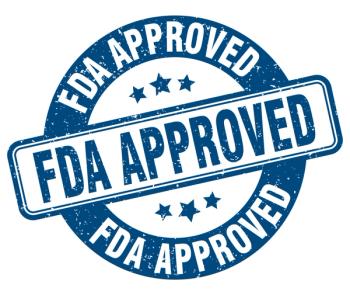
FDA Approves First Oral Treatment for Patients With Moderate to Severe Crohn's Disease
The approval of Rinvoq (upadacitinib) was based on the results of three clinical trials: two induction therapy studies and one maintenance study.
Yesterday, the FDA approved1 Rinvoq (upadacitinib; AbbVie) to treat moderate to severe Crohn's disease in adults who have not responded or tolerated treatment with one or more TNF blocker drugs. This approval adds a seventh indication for Rinvoq, which becomes the first oral pill indicated for Crohn’s disease.
Crohn's disease is a chronic condition that causes inflammation and damage of the lining of the digestive tract, especially the small intestine. Symptoms commonly include bouts of diarrhea, bloody stools, abdominal pain, fever, and weight loss. The disease commonly manifests as a recurring pattern of intermittent flares, characterized by the worsening of the condition and the presence of symptoms, which are subsequently followed by periods of clinical remission, during which the inflammation and symptoms subside.
"AbbVie recognizes the need for more treatment options for Crohn's disease that can help address both rapid relief of symptoms along with the visible reduction of intestinal lining damage. We're pleased that Rinvoq may provide this relief and is now available to treat Crohn's disease,” Dr. Thomas Hudson, MD, senior vice president of research and development and chief scientific officer of AbbVie, said in a press release.2
Rinvoq is a once-daily oral tablet. The induction (starting) dosage for Crohn’s disease is 45 milligrams (mg) taken once daily for 12 weeks, followed by a maintenance dosage of 15 mg or 30 mg once daily thereafter.
The FDA approved the drug for Crohn's disease based on the results of three clinical trials: two induction therapy studies and one maintenance study. In the two induction studies, 36% and 46% of participants treated with Rinvoq 45 mg achieved clinical remission at 12 weeks, respectively, versus 18% and 23% of participants receiving a placebo. Endoscopic evidence from these studies also showed visible reductions in damage of the intestinal lining among those treated with Rinvoq. In the maintenance trial, 42% to 55% of participants treated with Rinvoq had clinical remission at 52 weeks, respectively, compared to 14% of those who took a placebo.
The list price3 for a 30-day supply of Rinvoq is around $6,125. Eligible patients may be able to benefit from copay savings cards and other financial support programs from AbbVie.
The FDA previously approved Rinvoq for the treatment of rheumatoid arthritis, psoriatic arthritis, ankylosing spondylitis, non-radiographic axial spondyloarthritis, and ulcerative colitis. An indication for atopic dermatitis (eczema) in patients aged 12 years and older was also previously approved.
The most common side effects of Rinvoq in patients with Crohn’s disease are upper respiratory tract infection, anemia, fever, acne, herpes zoster (shingles), and headache. Less common but serious risks4 of Janus kinase (JAK) inhibitors, such as Rinvoq, may include serious infections, malignancies, major cardiovascular events, blood clots, and increased risk of death in certain adults ages 50 years and older. The drug is not recommended to be used along with other JAK inhibitors, biological therapies, or strong immunosuppressants such as cyclosporine or azathioprine.
References
1. FDA approves first oral treatment for moderately to severely active Crohn’s disease. FDA. News Release. May 18, 2023. Accessed May 19, 2023. https://www.fda.gov/drugs/news-events-human-drugs/fda-approves-first-oral-treatment-moderately-severely-active-crohns-disease
2. U.S. FDA Approves RINVOQ® (upadacitinib) as a Once-Daily Pill for Moderately to Severely Active Crohn's Disease in Adults. News Release. AbbVie. May 18, 2023. Accessed May 19, 2023. https://news.abbvie.com/news/press-releases/us-fda-approves-rinvoq-upadacitinib-as-once-daily-pill-for-moderately-to-severely-active-crohns-disease-in-adults.htm?_ga=2.54113384.195917646.1684501505-1489729979.1684501505
3. Cost & Savings. Rinvoq. Accessed May 19, 2023. https://www.rinvoq.com/cost
4. Highlights of Prescribing Information for Rinvoq. FDA. Accessed May 19, 2023. https://www.accessdata.fda.gov/drugsatfda_docs/label/2023/211675s015lbl.pdf
Newsletter
Pharmacy practice is always changing. Stay ahead of the curve with the Drug Topics newsletter and get the latest drug information, industry trends, and patient care tips.























